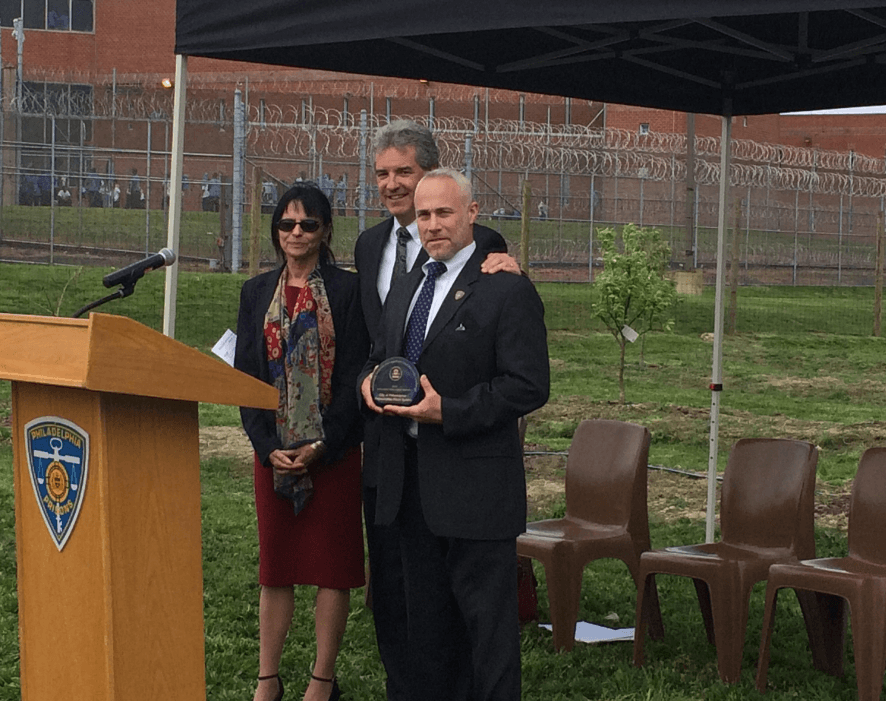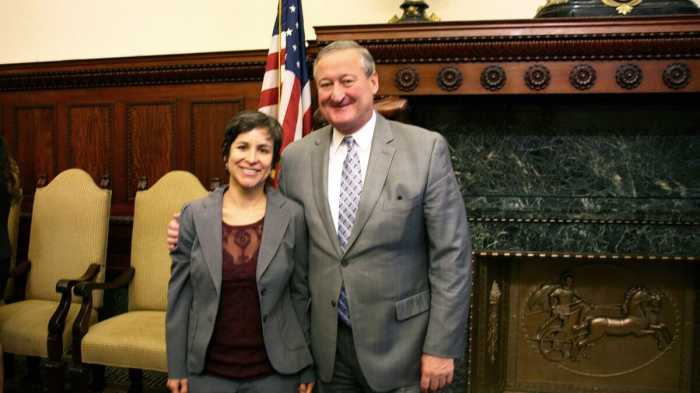Few idle hands could be found Thursday at the prison up on State Road, for inmates there were composting in preparation for Earth Day.
But they weren’t just making a day of it.
For months now, inmates within the Philadelphia Prison System have been fertilizing and composting over a ton of food that would have otherwise gone wasted inside their walls. On Thursday, the U.S. Environmental Protection Agency recognized the city for the innovative food recovery project. “The inmates are doing all of this work. There’s a sense of pride and learning skills that will be transferrable into a green market or skill sets that will help them be competitive in doing other things,” said Shawn Garvin, the EPA’s Mid-Atlantic Regional Administrator. RELATED:Queens organization wants to help make Earth Day every day, offers tips to reuse items Garvin said each inmate participating in the on-site orchard program is trained in horticulture and urban gardening.
The program has thus farsavedthe city $31,000 by composting 1.35 tons of wasted food, each day, instead of paying landfill fees, according to Garvin. The effortdiverts food waste from entering landfills or incinerators, he said. The compost is then put into the prison grounds and made into vegetable gardens and a fruit orchard. “One gentleman actually made all the signs that are at each end of the orchard, [describing] this row is pears, this row is apples… It’s tremendous work they’re doing,” said Garvin.
On Thursday, Acting Prison Commissioner Michael Resnick accepted an award on behalf of the prison system from the EPA’s National Food Recovery Program Challenge. The program incentivizes organizations to improve their sustainable food management practices and report their results to the EPA. This includes how materials are extracted, manufactured, distributed, used, reused, recycled and disposed. RELATED:Second annual Earth Day 5K tour aims to raise visibility for NYC green groups Philly won second place in the category of innovation.
“The PPS is very proud of the work that has been done in the effort of making our campus and our world cleaner by way of our composting project, orchard project and the green jobs training component, where inmates are building important skills in the emerging field of green jobs provided by Temple University,” said Resnick. “We would like to thank everyone involved in the program, including the officers assigned, the inmates workers and our partners from Temple University.”
Philly prisoners get their hands dirty for Earth Day

Provided




























